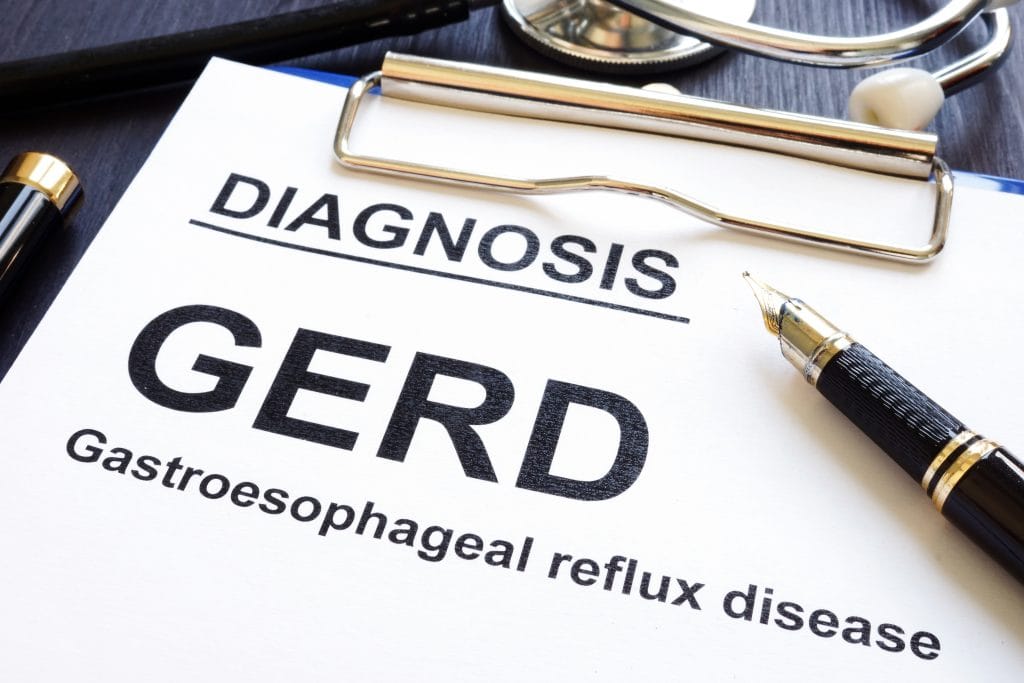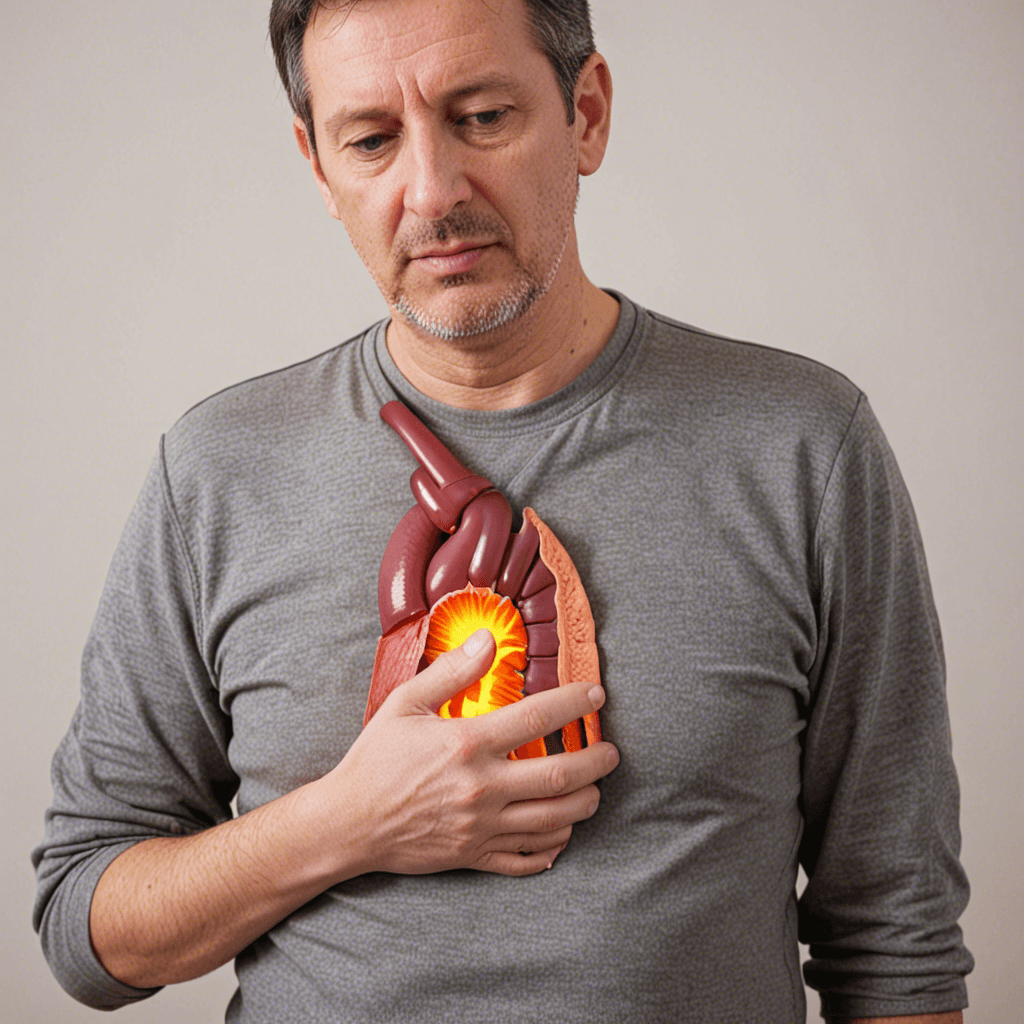
Understanding GERD
Gastroesophageal Reflux Disease (GERD) is a digestive disorder that many people experience. If you’ve ever felt a burning sensation in your chest after eating, you’ve probably had heartburn, one of the main symptoms of GERD. GERD happens when stomach acid flows back into the esophagus, the tube that carries food from your mouth to your stomach. This happens because the lower esophageal sphincter (LES), a muscle between your stomach and esophagus, doesn’t close properly. As a result, stomach acid irritates the lining of your esophagus, causing discomfort.
What Causes GERD?
There are many things that can cause GERD. Some common causes include:
- Obesity: Extra weight puts pressure on your stomach, making it easier for acid to back up into the esophagus.
- Pregnancy: Hormonal changes can relax the LES, leading to acid reflux.
- Smoking: Smoking weakens the LES and increases stomach acid.
- Diet: Eating certain foods like spicy foods, chocolate, and citrus can trigger GERD.
- Medications: Some drugs, like painkillers and antihistamines, can relax the LES and cause GERD.
Signs and Symptoms of GERD
The most common symptom of GERD is heartburn, which feels like a burning sensation in your chest after eating. But there are other signs to watch for, too:
- Regurgitation: This is when you feel sour or bitter acid in the back of your throat or mouth.
- Trouble Swallowing: You might feel like food is stuck in your throat.
- Chest Pain: This can sometimes be mistaken for a heart attack.
- Sore Throat: Acid can irritate your throat, leading to a scratchy or sore feeling.
How to Treat GERD
Managing GERD is all about combining medications, lifestyle changes, and some smart choices in your daily habits. Let’s look at each treatment option.
Medications to Help with GERD
- Antacids: These are the most common over-the-counter medications for heartburn. They work by neutralizing stomach acid to quickly relieve the burning feeling. Some popular brands are Tums and Rolaids. But, they don’t work well for long-term GERD treatment.
- H2 Blockers: These medications, like Zantac and Pepcid, reduce the amount of acid your stomach produces. They’re better for longer-lasting relief than antacids and can help if your symptoms are more than occasional.
- Proton Pump Inhibitors (PPIs): These powerful drugs, such as Prilosec and Nexium, block the enzyme that produces stomach acid. PPIs are often used for more serious GERD and can give long-term relief when used correctly.
- Prokinetics: These medications, like Reglan, help strengthen the LES and make food move more easily through your stomach. They’re usually prescribed if other treatments haven’t worked.
Lifestyle Changes for Managing GERD
While medications can help, lifestyle changes are just as important. Here’s what you can do to reduce GERD symptoms:
- Manage Your Weight: Carrying extra pounds can increase pressure on your stomach and weaken the LES. Losing weight can reduce reflux and make you feel better.
- Watch What You Eat: Certain foods can trigger GERD. Some common culprits include:
- Spicy foods
- Citrus fruits
- Tomato-based dishes
- Chocolate
- Caffeine
- Alcohol
- Fried or fatty foods
Keep a food journal to figure out which foods make your symptoms worse, and try to avoid them.
- Eat Smaller, More Frequent Meals: Instead of having three big meals, try eating smaller meals throughout the day. This can reduce pressure on your stomach and help prevent acid reflux.
- Elevate the Head of Your Bed: Sleeping with your head raised 6-8 inches helps keep stomach acid down. This is especially helpful for people who experience reflux at night.
- Avoid Eating Late at Night: Don’t eat right before bed. Give yourself at least 3 hours between your last meal and bedtime to allow your stomach to digest the food.
- Quit Smoking: Smoking weakens the LES and increases acid production. Quitting smoking is one of the best things you can do to reduce GERD symptoms.
- Wear Loose Clothing: Tight clothes, especially around your waist, can put pressure on your stomach. Opt for looser clothing to avoid triggering acid reflux.
Surgical and Endoscopic Treatments for GERD
If medications and lifestyle changes don’t help, surgery or other medical procedures might be needed. Here are some options:
- Fundoplication: This surgery strengthens the LES by wrapping the top of your stomach around it. This can help prevent acid reflux. It’s often done with minimally invasive techniques, which means smaller incisions and faster recovery.
- LINX Device: This is a small ring of magnetic beads that is placed around the LES. The magnetic attraction helps keep the LES closed, preventing acid reflux.
- Endoscopic Procedures: There are several less invasive options, like the Stretta procedure, which uses radio frequency to strengthen the LES, and Transoral Incisionless Fundoplication (TIF), which creates a new valve in the stomach to stop reflux.
Conclusion
GERD is a chronic condition that requires a comprehensive approach to management. By combining medication, lifestyle changes, and dietary modifications, many patients can effectively control their symptoms and improve their quality of life.
For those who do not respond to these measures, surgical and endoscopic treatments offer additional options. Consulting with a healthcare provider like Gastroenterology Medical Clinic, is essential for developing an individualized treatment plan and ensuring the best possible outcomes.
Frequently Asked Questions
What is GERD and what causes it?
GERD is when stomach acid flows back into the esophagus, causing heartburn. It can be caused by obesity, pregnancy, smoking, certain medications, and diet.
What are the main symptoms of GERD?
The main symptom is heartburn, but it can also cause chest pain, trouble swallowing, regurgitation, and a sore throat.
What treatments are available for GERD?
Treatments include antacids, acid blockers, proton pump inhibitors (PPIs), and medications to help stomach movement. Lifestyle changes like diet adjustments can also help.
How can dietary changes help with GERD?
Avoiding spicy, fatty, or acidic foods, eating smaller meals, and keeping a food diary to find triggers can reduce GERD symptoms.
Can surgery treat GERD?
Yes, surgery options like fundoplication or the LINX device can be used if medications and lifestyle changes don’t work.
What lifestyle changes can help with GERD?
Losing weight, quitting smoking, eating earlier in the evening, elevating the head of your bed, and wearing loose clothing can help reduce symptoms.
Are GERD medications safe?
GERD medications are safe when used as directed, but long-term use should be monitored by a doctor to avoid side effects.




